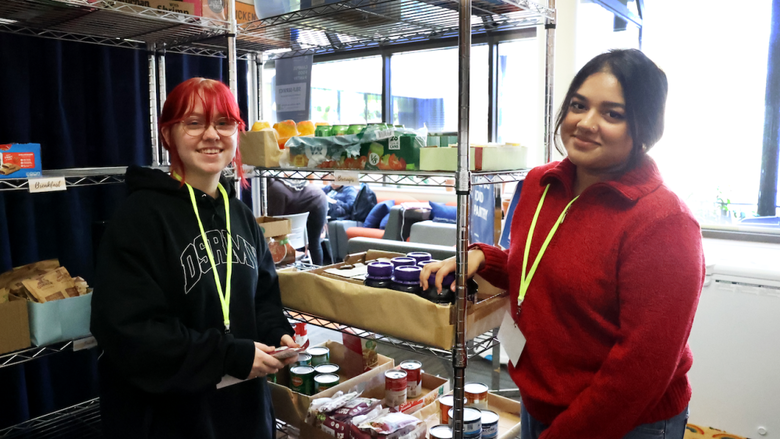Last summer, the Penn State Brandywine Vairo Library staff enrolled in the Green Paws program. Green Paws is a certification program designed to help offices at either University Park or other Commonwealth Campuses to be more sustainable.
Since the campus Green Paws initiative started in early April, they have worked to make the campus more efficient and environmentally sustainable.
They have plans to continue throughout the summer and will complete Level One in the middle of the fall semester.
One of the actions they took during weeks one through three focused on the three steps outlined under Energy on the tracking checklist — including turning off computer monitors at the end of each day, enabling power management on computers, and turning off lights in offices and rooms that are not in use.
“We really liked the manageable steps we could take to become compliant in the various Level One sustainable actions,” said Mary Fran McLaughlin, a reference librarian at the Brandywine campus and member of the campus Sustainability Committee.
During this past semester the committee discussed the possibility of having the entire campus, through individual units, participate in the Green Paws program.
“With the complete support of our campus chancellor, Dr. Kristin Woolever, we divided our campus into localized units, each with a Green Paws representative, and, in April, rolled the program out to all campus employees,” said McLaughlin.
Since that time, a new Level-One action is addressed each week. At the end of the week, employees report their successes back to the Green Paws representative.
Brandywine has not only shown initiative in the Green Paws program, but has been working to gain certification as a pollinator garden.
In the fall of 2014, the Sustainability Committee at the Brandywine campus became aware of Penn State's Center for Pollinator Research garden certification program. Charles Daly, landscape group leader for the campus, had already been including many native pollinator plants in his plantings, so the certification process was simply a matter of doing the paperwork.
Daly filled out the form, indicating the many plants around campus and, in February 2015, the Brandywine campus earned its pollinator garden certification.
Along with the certification, the campus contains an actual garden, growing mostly vegetables, that was created as part of a Brandywine Honors Program initiative.
“We originally referred to this garden as the Honors Sustainable garden, since its creation and maintenance was funded through the Honors Program,” said McLaughlin. The goal was to help students in any major gain a better understanding how to grow organic crops and lead a sustainable community.
“Unfortunately, the Honors Program is no longer able to financially support this garden, so we have entered a year without funding for the garden,” said McLaughlin.
This has put the campus and its community members’ hopes on hold for expanding the garden and the possibility of adding a greenhouse.
Emily Dozor, the Garden Coordinator for the campus and member of the Sustainability Committee, hopes to someday have an outdoor classroom and greenhouse.
“We also hope to provide some produce for the cafeteria grown by students and donate to local food banks as well,” Dozer said.
Penn State Brandywine is leading the way by helping the students, faculty and staff broaden their understanding of sustainability concepts by what they are learning and doing through their work with Green Teams, the Pollinator Certification, and the Sustainable Garden initiatives.




